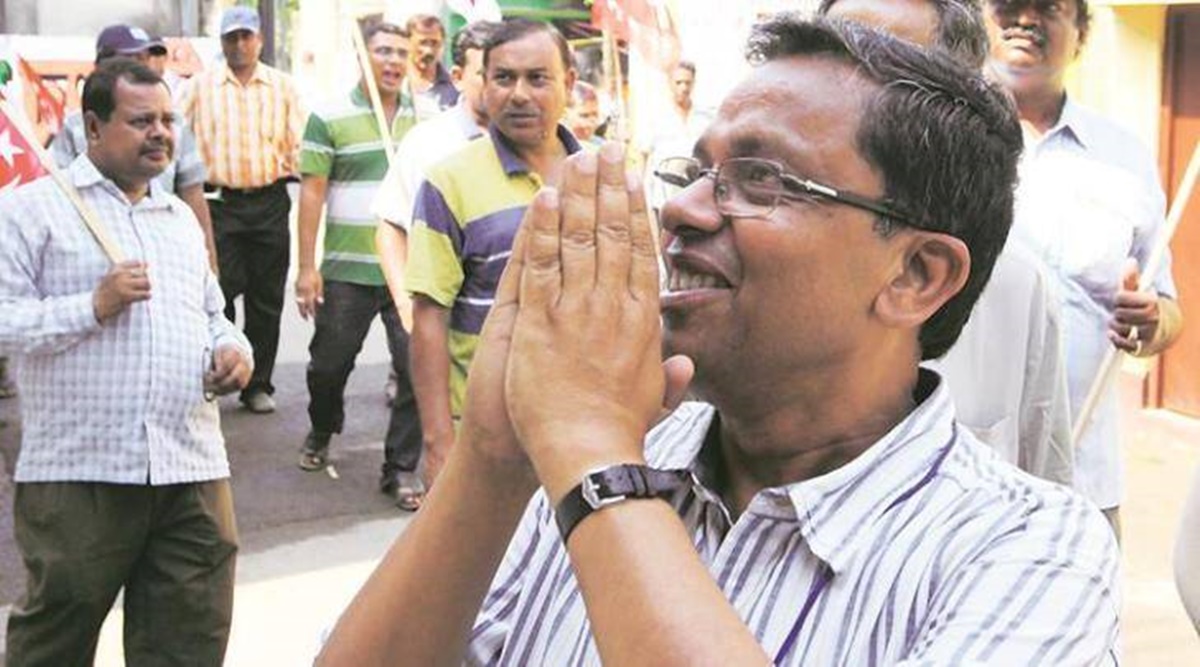Mahapatra was arrested for forwarding the cartoon to 65 people. The cartoon depicted Banerjee, then Railways Minister Mukul Roy, and his predecessor Dinesh Trivedi.
The Alipore court here on Friday heard a case filed under the scrapped Section 66A of the Information Technology (IT) Act against Jadavpur University (JU) professor Ambikesh Mahapatra who was arrested in 2012 for e-mailing a cartoon on Chief Minister Mamata Banerjee. The matter will be taken up again on Monday.
The hearing was held almost a month after the Union Ministry of Home Affairs (MHA), in a directive dated July 14, asked all states and union territories to immediately withdraw cases registered under Section 66A. The MHA notice referred to the Supreme Court’s landmark Shreya Singhal judgement of 2015 that struck down Section 66A, and said the top court had “taken a very serious view” of the fact that some police authorities were still registering cases under the revoked section.
“Though my lawyer, the court yesterday informed me that a hearing on the case will be held today. This was very surprising as no hearing had taken place since the submission of the chargesheet in 2013. Even the charges against me are yet to be framed. We feel that this hearing was initiated after the Supreme Court asked all states to withdraw the cases under the now-scrapped section of the IT Act,” Mahapatra said.
Advocate Baiswanor Chatterjee who appeared in court on behalf of the state government said, “A hearing was held today. The judge has reserved his order on the case for August 16 when the matter will be heard again.”
Mahapatra was arrested for forwarding the cartoon to 65 people. The cartoon depicted Banerjee, then Railways Minister Mukul Roy, and his predecessor Dinesh Trivedi.
The professor was charged under IPC sections 114, 500 and 509, and Section 66A(b) of the IT Act. In the chargesheet submitted to the Alipore court in 2013, the police dropped all charges filed under the IPC, and retained only the IT Act provision.
Source: Read Full Article


